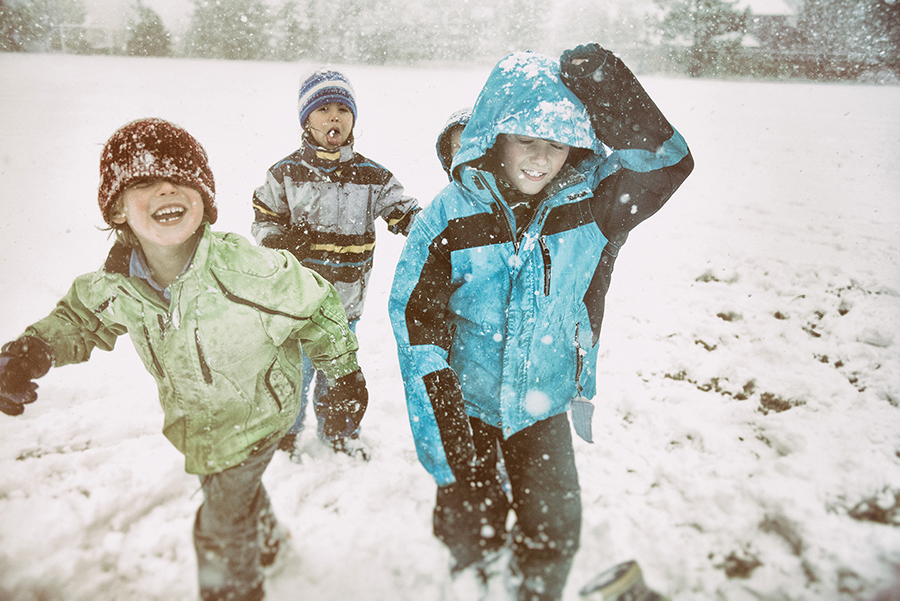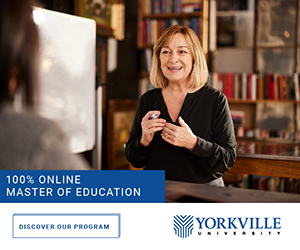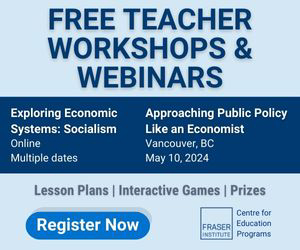After participating in a three-day, two-night Winter Camp excursion in the Kananaskis region of Alberta, Timmy* (a 6th-grade student from Connect Charter School in Calgary) was asked about their favourite memory from the experience.
“Probably like, the most funniest part was when we were going to demolish our quinzhees. One of my group members’ Dad came, and he wanted to take a photo of her on top of it. She busted right through the top, and everyone just started to like jump on it. Like fall through it, and it was really fun. It was like a really fun bonding time and it was really something to remember how fun it was.”
Timmy’s recollection of their favourite memory describes the joy and novelty students can experience through field trips and outdoor education excursions. Throughout this particular trip, students participated in a variety of activities, including Nordic skiing, constellation stories, snow studies, and quinzhee building. But, out of all the activities, Timmy’s favourite was smashing apart a large snow shelter with their friends.
Interestingly, when asked about their perceptions of the purpose of a trip like this Winter Camp, Timmy described the purpose as learning more about what was being taught in the classroom, but in a different way. They said, “…instead of examining, let’s just say what a lake looks like, it’d be to better to go out and see a lake and to experience it.” Timmy’s perceptions echo how we as educators typically plan field trips and outdoor excursions to augment and support the curricular content we are teaching. We intentionally plan experiences to meet our curricular and classroom needs. But Timmy’s favourite memory also describes an essential aspect of field trips and outdoor education: relationships. Timmy didn’t just enjoy smashing the quinzhee, they enjoyed smashing the quinzhee with their friends.
Timmy specified that this memory was “a really fun bonding time”. Both student-teacher relationships and peer relationships are critical aspects of teaching and learning (Hamre & Pianta, 2006), so activities that can lead to stronger relationships should be valued. Field trips and outdoor education experiences like the one Timmy participated in can provide the right environment for student-teacher and peer relationships to grow. As well, there is some speculation that these types of activities can benefit other skills that are essential to success in school: executive functions.
Executive functions, or EFs, are a group of cognitive skills that impact all aspects of an individual’s life, including schooling and academic achievement (Diamond, 2013). These skills, which include working memory, cognitive flexibility, and response inhibition, allow individuals to control our impulses, approach problems from multiple perspectives, hold information in mind, and perform mental manipulation (Diamond, 2013; Zelazo, Blair & Willoughby, 2016). EFs are of particular interest to educators because they are closely related to academic success; they can be a greater predictor of numeracy and literacy skills than IQ (Alloway & Alloway, 2010; Titz & Karbach, 2014) and individuals with stronger EFs demonstrate greater learning and retention as compared to those with weaker EFs (Benson, Sabbath, Carlson, & Zelazo, 2013).
As well, EFs can be improved at any age (Diamond, 2013). Some interventions and programs for improving EFs aim to directly support working memory, attention, and cognitive flexibility through training and skill-building exercises. An alternative approach is to indirectly enhance EFs by creating the conditions in which their development can thrive: a sense of community; a sense of achievable challenge; and a sense of physical safety (Diamond & Ling, 2016). This is where field trips and outdoor education excursions can positively impact EFs; by fostering effective relationships, encouraging students to engage in novel activities, and ensuring their safety and well-being while off-site.
Recently, Timmy and seven other sixth-grade students were interviewed about their experiences at their school’s outdoor education experiences. Their interviews were recorded, transcribed, and then analyzed using thematic analysis (Attride-Stirling, 2001). Three themes emerged from their interviews that coincided with the three conditions to support EFs that were described above.
The first theme centered around the participants’’ perceptions of learning. Much like Timmy, most of the interviewees described the purpose of these activities as providing more context or concrete examples for content that had previously been taught in class. However, the interviewees described relationship-building as being central to their enjoyment of the entire trip. For the participants, the trip’s purpose and focus was on spending time with their friends and peers in a new environment.
Secondly, the participants also described the importance of physical comforts. This second theme emphasized how seemingly smaller factors can significantly hamper a student’s enjoyment of a trip. For example, many participants described how sharing a room or tent with classmates could be enjoyable, but could also lead to a lack of sleep, which in turn led to less enjoyment overall. Similarly, some participants described how inadequate footwear or unenjoyable meals led them to having less success and fun on the trip.
Lastly, the final theme that emerged from the interviews illustrated a shift in behavioural expectations while students were attending their outdoor education excursion. The outdoor environment was seen as an opportunity for “wildness”, where risk-taking is encouraged while participants engage in a variety of novel, challenging activities. Timmy’s favourite memory provides an excellent example of this theme; as part of the planned activities, Timmy and their friends were given instruction on quinzhee-building and built a large structure over a couple of days. Then, Timmy and their peers have their best moments of the trip while demolishing their shelter, bonding together as peers.
These three themes are linked to three factors that Diamond and Ling (2016) hypothesize to support EFs. They state:
Since (a) stress, sadness, loneliness, and poor physical health (e.g., not enough sleep) impair EFs … and since (b) EFs are better when we are less stressed, happier, well rested, and feel there are people who we can share experiences with, who care about us, and who we can turn to for support, it follows, we hypothesize, that while training and challenging EFs is necessary for improving them, benefits will be greater if emotional, social, and physical needs are also addressed. (p.43)
Based on this hypothesis, as well as the three themes described above, field trips and outdoor education experiences can provide environments where EFs can be indirectly supported. More research in this area is needed, particularly regarding whether these types of experiences directly improve EFs.
In the meantime, teachers and school leaders can consider these factors when planning field trips and other off-campus activities. Relationship building can be seen as an integral element to these types of activities, and can be reason enough to leave campus. Physical comforts and safety continue to be paramount, but teachers and leaders should not assume that their students have the same capabilities, equipment, and experience as each other. Spending a bit of extra time ensuring that all students’ physical needs are met will lead to more enjoyment for all participants. Finally, teachers and leaders could benefit from recognizing the shift in attitude and expectations that students may experience when engaged in field trips and outdoor activities. These places are different than the classroom, and the different expectations can lead to shared, enjoyable, and memorable experiences that go beyond the school’s walls.
By: Jared McKenzie
References
Alloway, T. P., & Alloway, R. G. (2010). Investigating the predictive roles of working memory and IQ in academic attainment. Journal of Experimental Child Psychology, 106(1), 20-29. doi: https://doi.org/10.1016/j.jecp.2009.11.003
Attride-Stirling, J. (2001). Thematic networks: An analytic tool for qualitative research. Qualitative Research, 1(3), 385-405.
Benson, J. E., Sabbagh, M. A., Carlson, S. M., & Zelazo, P. D. (2013). Individual differences in executive functioning predict preschoolers’ improvement from theory-of-mind training. Developmental Psychology, 49(9), 1615-1627. doi: 10.1037/a0031056
Diamond, A. (2013). Executive functions. Annual Review of Psychology, 64(1), 135-168. doi: 10.1146/annurev-psych-113011-143750
Diamond, A., & Ling, D.S. (2016). Conclusions about interventions, programs, and approaches for improving executive functions that appear justified and those that, despite much hype, do not. Developmental Cognitive Neuroscience, 18(2016), 34-48. doi: 0.1016/j.dcn.2015.11.005
Hamre, B. K., & Pianta, R. C. (2006). Student-Teacher Relationships. In G. G. Bear & K. M. Minke (Eds.), Children’s needs III: Development, prevention, and intervention (pp. 59–71). National Association of School Psychologists.
Titz, C., & Karbach, J. (2014). Working memory and executive functions: effects of training on academic achievement. Psychological Research, 78(6), 852-868. doi: 10.1007/s00426-013-0537-1
Zelazo, P.D., Blair, C.B., & Willoughby, M.T. (2016). Executive function: Implications for education. (NCER 2017-2000). Washington, DC: National Center for Education Research, Institute of Education Sciences, U.S. Department of Education. Retrieved from: http://ies.ed.gov/












